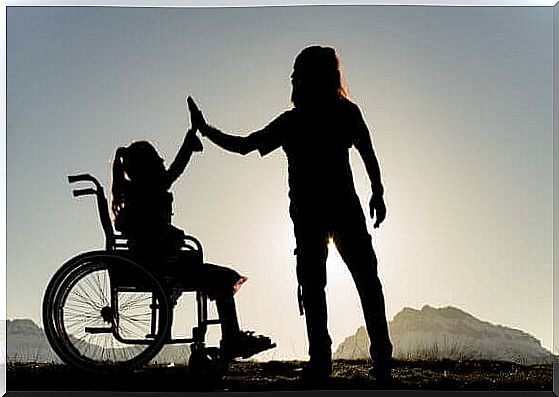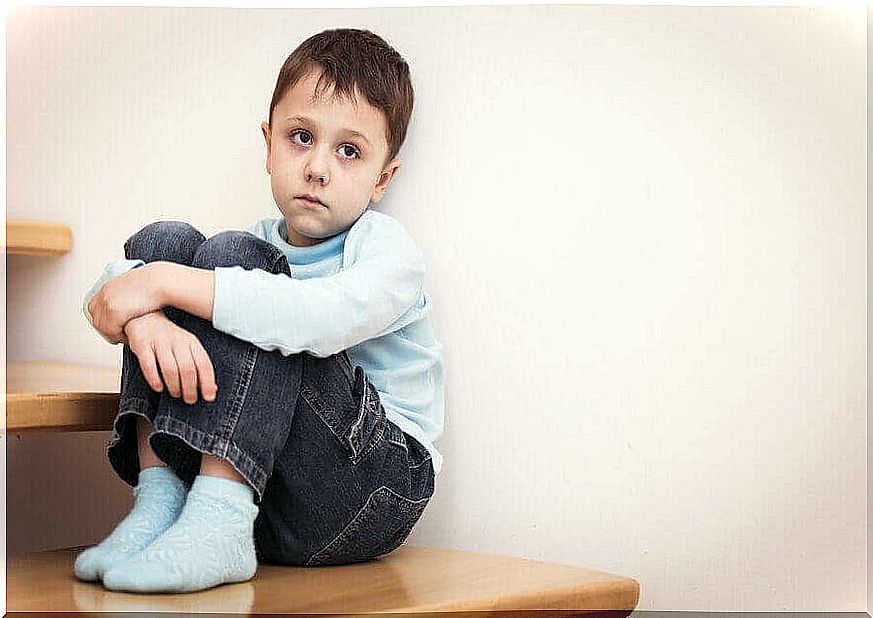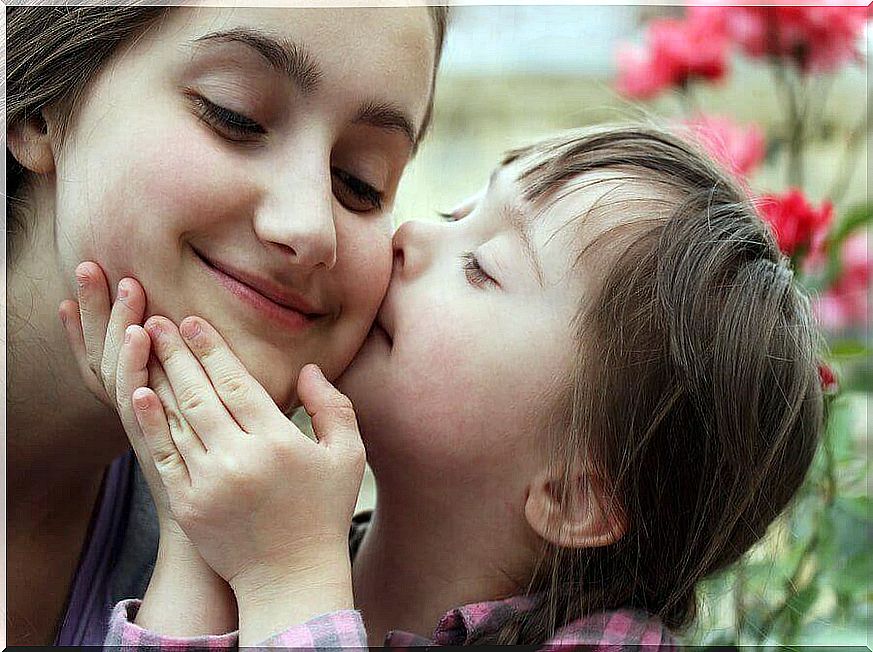Everyday Life With A Disabled Sibling With Her Joys And Challenges

Living with a disabled sibling is also forcibly reflected in the daily lives of other children in the family. Although a sister or brother is dear to other children, the situation can be difficult for children in many ways and evoke painful feelings that can sometimes be difficult for family members to understand.
Everyday life with a disabled sibling with her joys and challenges
Everyday life with a disabled sibling can arouse a lot of worry and frustration in other children in the family, which is perfectly normal. The following problems are common in such situations.
Fear and anxiety
It can be difficult for a child to understand why a sister or brother is so different. This is a normal phenomenon, and it is important to understand that difference, however, is not necessarily a bad thing. Man is always an individual who is different from others in many ways.
On the other hand, there may be a fear of what might happen to a disabled sibling in the future. Other family members may be constantly concerned about whether a child with a disability is experiencing any of the health problems that are causing him or her to be hospitalized.
Feelings of guilt
A child may think of his or her disabled sibling that he or she is somehow to blame for his or her disability. These feelings are common in early childhood. On the other hand, guilt can also occur when it is time for the young person to leave home and the parents remain to care for the disabled sibling.
However, it must be remembered that a healthy sister or brother must live his or her own life and become independent. This does not mean that he would love his disabled sibling less or that he would be a bad sibling – it is enough to support and help the other whenever possible.
Feeling of distance, loss and loneliness
These feelings may be due to the fact that the child wants attention from their parents when they have to spend a great deal of time caring for the needs of the disabled sibling.
It is important to get a balance in the situation so that a healthy sibling can also spend time with their parents. Every child is unique and needs time as well as attention from their parents.

Feelings of shame
A child may see their family as very different if one of the siblings has a disability, because then the routines and activities are different than in the other families.
It must still be remembered that no family is quite like the other. So a child does not have to be ashamed of his family – and after all, the family is also the most valuable thing a person can have.
On the other hand, it is true that sometimes a child finds himself in embarrassing situations when, for example, he has to answer questions from classmates about his disabled sibling. In this case, the child should simply explain the matter in a natural way.
Greater mental maturity than peers
The child may find that he or she is forced to mature mentally faster than his or her peers as he or she experiences more challenges in everyday life at home.
Perhaps the other parent is often away from home because of a disabled sibling. There can also be many hospital trips, and tension and anxiety make a child look to the future differently. On the other hand, all of these things teach a person to respond better to setbacks.
How to deal with everyday disabled siblings?
The following tips will help your child face the situation in a positive way.
The role of parents
In general, caring for the needs of a child with a disability takes up a large portion of parents ’time and thoughts. Siblings may feel like they don’t want to pay attention to the other children in the family.
If your sister or brother is disabled, you should take the opportunity to spend time with your parents, even if these moments are very short. It is important to understand that this lack of time is due to circumstances – so parents do not intentionally spend more time with one child than another.
If you feel you are being ignored in your home because of a disabled sibling, keep this in mind: you will understand the situation better when you are a little older.
Communication is a positive thing
Talk to your parents or another trusted adult about how the conditions in your home will affect you. When you share your own doubts, fears, and other feelings with such a person, you will feel better. In addition, you will get support in this way, and you will be able to think together about what would be a good solution to the problems.

Get information about the disease
When you know everything you can about your sibling’s illness, you will be better able to understand her condition and put yourself in her position. As you grow older, you will be able to help your sibling more.
Spend quality time with your disabled sibling
You will find that these moments are great opportunities to strengthen family ties. While you may not be able to get in direct contact with your sibling, the very fact that you are present makes her feel better.
Pay attention to decisions that affect your sibling
If you participate in family decisions about your disabled sibling, you will be more aware of her situation and at the same time you will feel more valuable. You will find that you can contribute to improving her well-being.
Positive aspects of growing up with a disabled sibling
Some studies by therapists have shown that children with a disabled sibling are not mentally less developed than others. In fact, the results have been quite the opposite. A person gains many valuable experiences as he or she grows up in one way or another with a disabled sibling.
Disability can make family members closer, and it may also allow specific traits and virtues to develop. These include, for example, greater empathy, better listening skills, and early mental maturity.
If you are a child or young person with a disabled sibling, remember this: even if everyday life is challenging and difficult, keep your attitude positive. Remember, the situation is not necessarily a problem and each of us is different!









